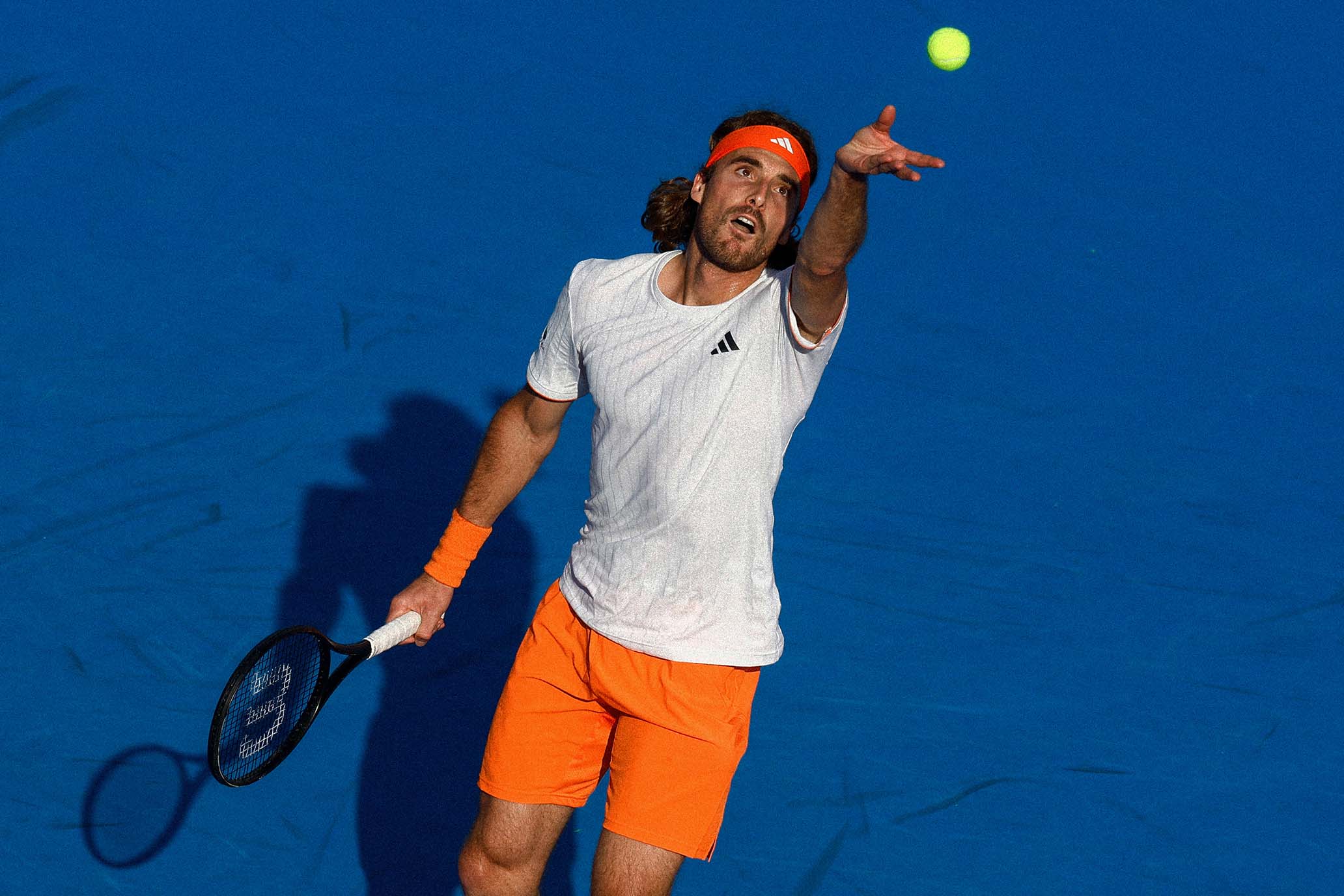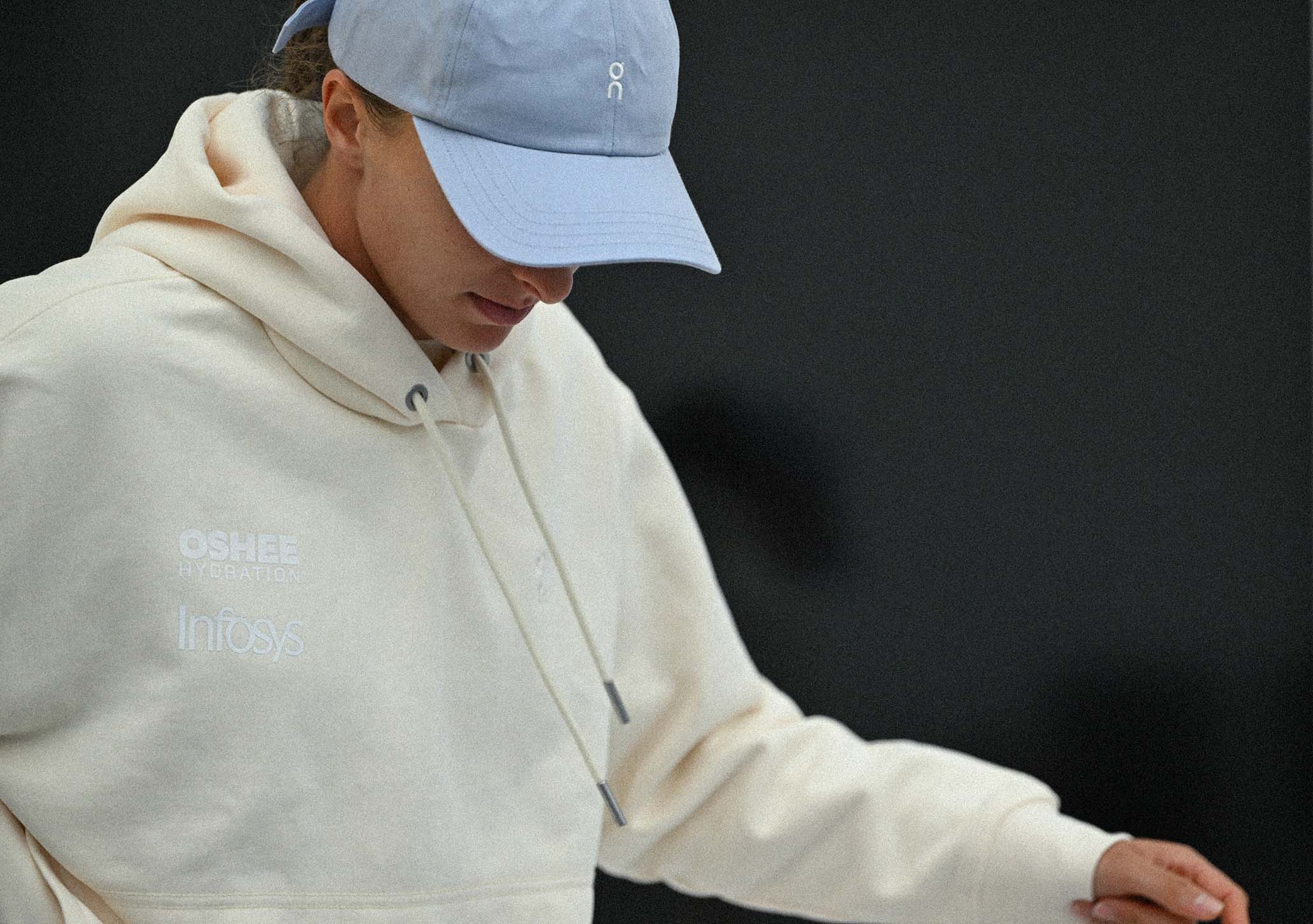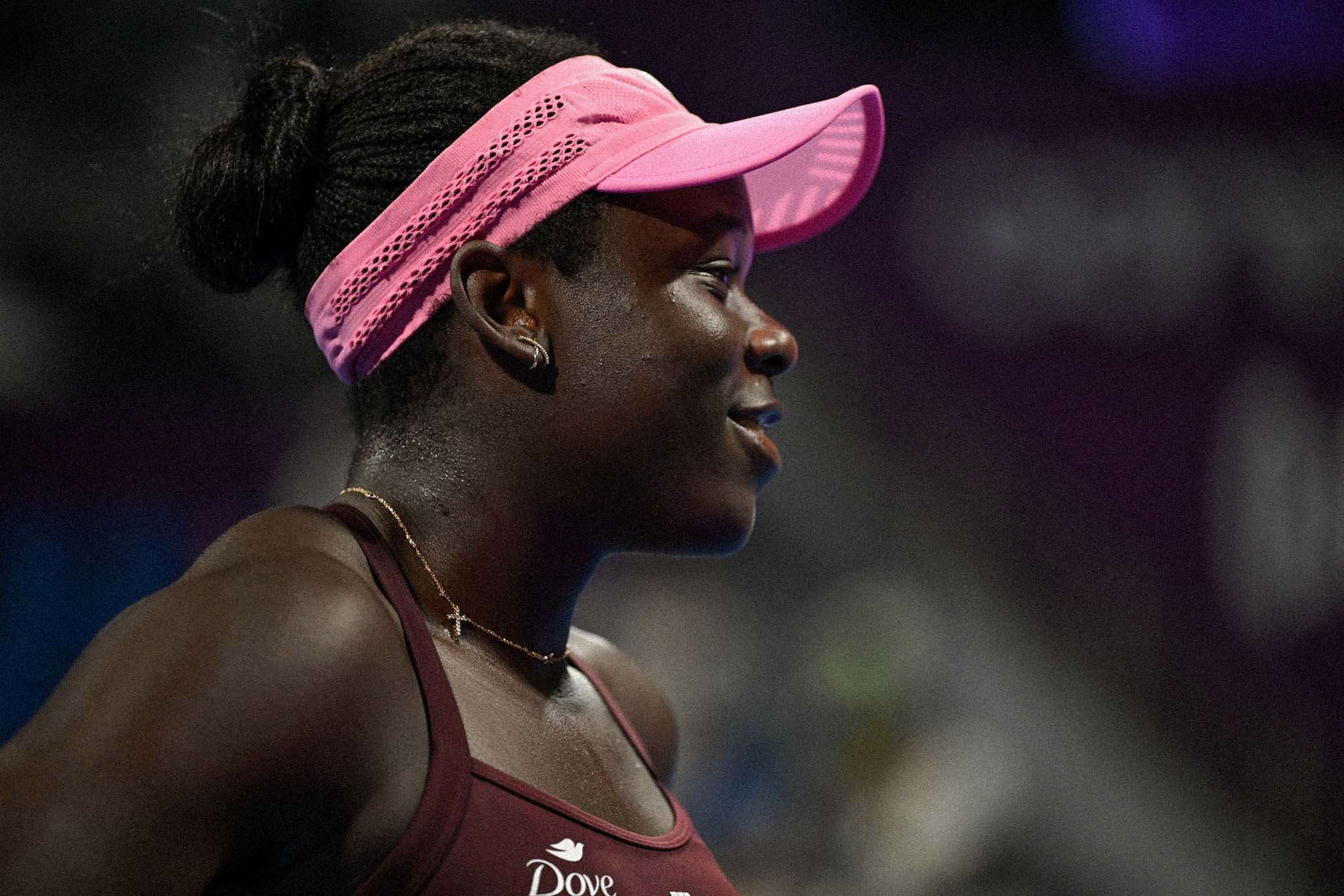A Call to Arms
A Call to Arms
Elena Rybakina has drifted over this season like a ghost.
Elena Rybakina has drifted over this season like a ghost.
By Giri NathanNovember 8, 2024

Elena Rybakina in Riyadh this week. // Getty

Elena Rybakina in Riyadh this week. // Getty
Aryna Sabalenka, who became the world No. 1 in late October, ensured this week that she would remain the world No. 1 at the end of 2024, a year that’s felt even more dominant than her four titles would suggest. She locked down both hard-court Slams, went deep in the other two, rarely lost early anywhere, and won Cincinnati and Wuhan for good measure. If she capped off the year with another trophy at the WTA Finals—which she’s currently in good position to do—it’d be a fitting end to a season that, in isolation, pretty much secured her fate as a Hall of Famer. But this week, Sabalenka also got a reminder of a familiar old menace. You’d have to go all the way back to…I dunno, four months ago, to remember her name. Sabalenka’s only loss at the WTA Finals thus far was at the hands of Elena Rybakina, a player who has drifted over this season like a ghost, both here and not.
Though the season pleasantly intensified the Iga Swiatek vs. Aryna Sabalenka rivalry, and set them against each other in a down-to-the-wire race for the year-end No. 1 ranking, it all would’ve been even spicier if the third member of the trio had been more present. Elena Rybakina, the stone-faced icon with the biggest serve on the WTA and the punishingly clean ground strokes, started the year on a 30–4 heater that included wins over both her chief rivals on their preferred court surfaces. When all three of these players are healthy, there’s a wildly compelling rock-paper-scissors dynamic playing out at the top of the tour.
But even during that successful stretch, she was dealing with health issues, and they only diversified as the months went on. Over the course of the season, she withdrew or retired from at least 10 events, citing maladies like gastroenteritis, abdominal injury, bronchitis, and, most recently, a lower-back injury that took her out of the US Open and the entire Asian swing. While Rybakina is famously cagey when fielding questions from the press, she was more candid ahead of the WTA Finals, referencing allergies and insomnia as other challenges. Somehow, amid all these interruptions, she won three 500-level titles and put together a strong enough body of work to end the year at No. 5 in the world. This is despite playing just three tournaments after Wimbledon and winning just two matches across them. She and Novak Djokovic—who also qualified for his tour’s year-end finals, but skipped them citing an “ongoing injury” and was recently seen chilling in the Maldives—are surely the best part-time tennis players on the planet.
By her own admission, Rybakina came into the finals without any particular goal in mind: “The level is definitely not at its best. Actually I came without too many expectations. I want to have fun.” And her performance in her first two was as spotty as you’d expect from a player who’d last competed in late August. She lost in straights to Jasmine Paolini, and ran out of gas in the deciding set against Qinwen Zheng. Given that those losses ruled her out of advancing past the group stage, Rybakina’s third match was just for the points, money, and aforementioned fun. She was to play Sabalenka, who had already secured a semifinal berth, and who had won 17 of her last 18 matches. And, improbably, Rybakina ended her year with a win over the hard-court player du jour, 6–4, 3–6, 6–1; she didn’t lose a point behind her first serve in that final blowout set. Here was one last reminder of her huge talent and, in particular, her calm way of unsettling Sabalenka’s baseline rhythm with her own calm, flat pace.
Looking ahead, there’s plenty of reason for Rybakina optimism in 2025. The biggest news of Rybakina’s year may well have been a personnel matter. The day the US Open draw was released, Rybakina announced that she had sacked Stefan Vukov, the first and only coach of her professional life. I’ve never seen a firing met with such widespread cheer from the broader tennis world. Whatever the internal dynamics—Rybakina publicly defended him from criticism at times—from the outside, it looked like an unusually antagonistic player-coach dynamic, with all of the ire flowing from crabby coach to soft-spoken player. Last week she revealed that she would be replacing Vukov with one of the highest-profile names on the market: Goran Ivanesevic, who completed his highly successful and stressful six-year tour of duty with Djokovic just ahead of the clay season. Ivanesevic said he had lots of offers from top players on both tours but picked Rybakina in part because he could directly relate to her game style: big serve, big hitter, won Wimbledon. If anyone can get Rybakina back into the arms race against Sabalenka and Swiatek, it’s him. That WTA “Big Three” everyone was so excited about—not a mirage.


The Hopper
—CLAY Tennis on Beatriz Haddad Maia’s US Open run.
—Giri on Iga Swiatek’s loss to Jess Pegula.
—Jon Wertheim’s mailbag is full this week.
—Sara Errani and Andrea Vavasori have won the US Open mixed doubles.
—Tim Newcomb on Taylor Fritz and Asics.

PURE, ORIGINAL TENNIS — SIGN UP!
RECOMMENDED
Meddy and Stef: A Recipe For Weirdness
QATAR OPEN
The Top Ten For Vicky Mboko
QATAR OPEN


